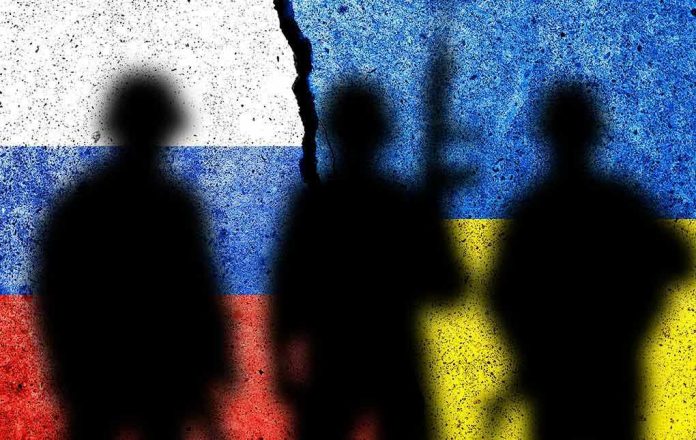
Russia’s desperate manpower shortage has driven the Kremlin to recruit over 1,400 African nationals from 36 countries to serve as cannon fodder in Ukraine’s bloodiest battlefields.
Story Snapshot
- Ukraine reports over 1,400 Africans from 36 countries fighting for Russia in high-casualty “meat assaults”
- Russian recruitment targets economically vulnerable populations with promises of money and citizenship
- Pattern follows Russia’s previous use of Syrian and Central Asian fighters amid severe troop shortages
- International concerns grow over exploitation of desperate migrants and prisoners
Russia’s Foreign Fighter Recruitment Reaches New Depths
Ukrainian intelligence officials released staggering figures in November 2025 revealing Russia’s systematic recruitment of African fighters across 36 nations. These individuals are reportedly thrust into Russia’s most dangerous “meat assault” operations, where mass infantry attacks result in devastating casualty rates. The scale and geographic spread of this recruitment effort exposes Russia’s increasingly desperate search for bodies to fill its depleted ranks.
The recruitment methods mirror classic exploitation patterns targeting economically disadvantaged populations. Russian operatives reportedly lure African nationals with promises of substantial payment, Russian citizenship, and stable employment. Many victims discover the deception only after arriving in Russia, where they face coercion to join military operations or risk imprisonment in a foreign country with limited diplomatic protection.
Historical Pattern of Exploitation Expands
Russia’s reliance on foreign fighters represents an escalation of tactics previously employed in Syria and other conflict zones. The Wagner Group’s extensive operations across Africa established recruitment networks that now serve Russia’s Ukraine war effort. These connections provide access to vulnerable populations facing economic hardship, political instability, and limited opportunities in their home countries.
The current recruitment drive differs significantly in scale and desperation from previous efforts. While earlier foreign fighter recruitment focused on experienced mercenaries or ideologically motivated volunteers, Russia now targets anyone willing to accept monetary incentives. This shift reflects the severe attrition rates Russian forces face against Ukrainian resistance and the Kremlin’s reluctance to implement broader domestic mobilization that could trigger internal unrest.
International Response and Verification Challenges
African governments face difficult diplomatic balances as reports emerge of their citizens fighting in Ukraine. South Africa has initiated investigations into how 17 of its nationals became involved in the conflict, highlighting the complex legal and diplomatic challenges these recruitment operations create. Many African nations maintain neutral positions on the Ukraine conflict while simultaneously needing to protect their citizens abroad.
Verification of Ukrainian claims proves challenging given restricted access to conflict zones and Russia’s refusal to acknowledge foreign recruitment programs. However, the allegations align with documented patterns of Russian military behavior and mounting evidence of severe manpower shortages. Independent confirmation from family members and diplomatic sources supports the broader narrative of African involvement, even if specific numbers remain disputed.
Implications for Global Conflict Norms
The systematic recruitment of vulnerable populations for high-casualty military operations raises serious questions about international humanitarian law and conflict ethics. Using economically desperate individuals as expendable infantry represents a troubling evolution in modern warfare that could establish dangerous precedents for future conflicts. The international community’s response to these practices will likely influence whether similar tactics become normalized in other global hotspots.
Russia’s actions also threaten to destabilize its relationships across Africa, a continent where Moscow has invested heavily in diplomatic and economic partnerships. African leaders face pressure to respond to the exploitation of their citizens while maintaining beneficial relationships with Russia. This tension could reshape African-Russian relations and influence broader geopolitical alignments across the continent, particularly as Western nations highlight Russia’s exploitative practices.
Sources:
Kyiv Says Over 1,400 Africans Fighting for Russia in Ukraine









